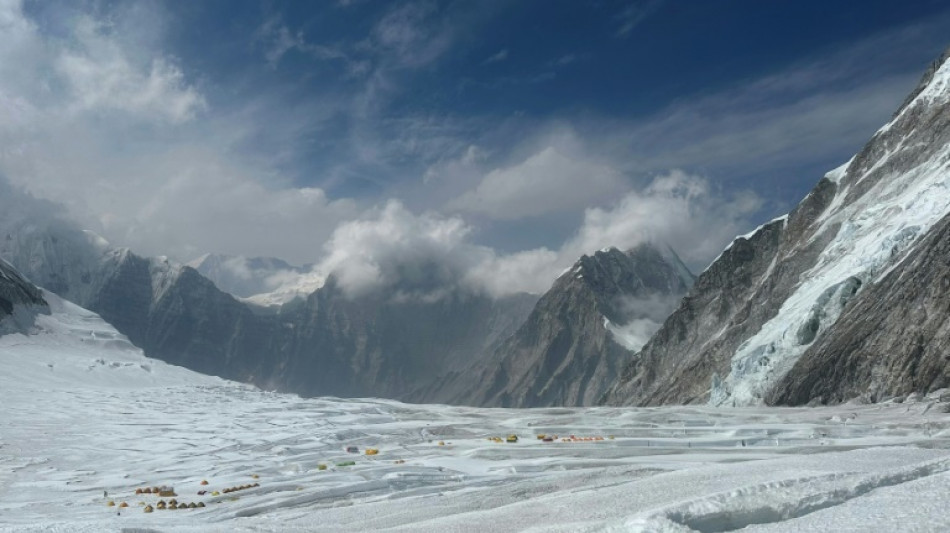Everest records tumble as season ends with eight dead / Photo: TSERING PEMBA SHERPA - AFP
Mountaineers on Everest left the world's highest peak on Wednesday, ending a climbing season that broke multiple records but left eight people dead, tourism officials and expedition organisers said.
More than 600 climbers and guides reached the 8,849-metre (29,032-foot) high Himalayan summit, Rakesh Gurung of the tourism department said, with the exact total yet to be verified.
"Teams have packed up and the route will be closed now," Gurung told AFP. "The season has ended."
Last year was the deadliest season on the mountain with 18 fatalities, but the toll for 2024 was much lower despite climbers reporting bottlenecks at the peak.
Among the eight dead were two climbers from Mongolia and one each from Kenya, India and Nepal.
Three people -- a British climber and two Nepali guides -- are listed as missing and presumed dead.
Nepal is home to eight of the world's 10 highest peaks and welcomes hundreds of adventurers each spring, when temperatures are warm and winds typically calm.
Records broken this year include Nepali climber Phunjo Lama's climb of just 14 hours and 31 minutes, the world's fastest ascent of the mountain by a woman.
Climbers usually take days to reach the top.
- 'Nepalis set records' -
Kami Rita Sherpa, 54, a Nepali climber known as "Everest Man", reached the peak for a record 30th time, three decades after his first summit.
"So many climbers earn their name and fame by climbing our mountains," said Purnima Shrestha, who reached the summit for a record three times this season, the most for a woman.
"I think it is good that we Nepalis set records in our motherland."
Mingma G Sherpa, who runs Imagine Nepal Treks and Expeditions, said there was "more attention" on Nepali climbers, partially driven by social media.
"I think everyone can now see the value of claiming records," he said.
Briton Kenton Cool also extended his non-Nepali record with his 18th summit, while Polish climber Piotr Jerzy Krzyzowski became the first to summit both Lhotse and Everest without supplemental oxygen.
"There were many successes for everyone and it has been a good season," said mountaineering guide Tsering Pemba Sherpa, who reached the summit of Everest for the 11th time.
But Sherpa said a dry winter had increased the risks with wider crevasses and chances of rockfalls.
Some climbers shared images of hundreds queueing to make their final summit push in the "death zone", where thin air and low oxygen levels heighten the risk of altitude sickness.
But guide Vinayak Malla said that was a consequence of the narrow windows of weather to climb.
"Climbers aim for the summit when the weather is good," Malla said. "That's what caused the rush."
Nepal issued more than 900 permits for its mountains this year, including 421 for Everest, earning more than $5 million in royalties.
A.Krishnamurthy--BD
